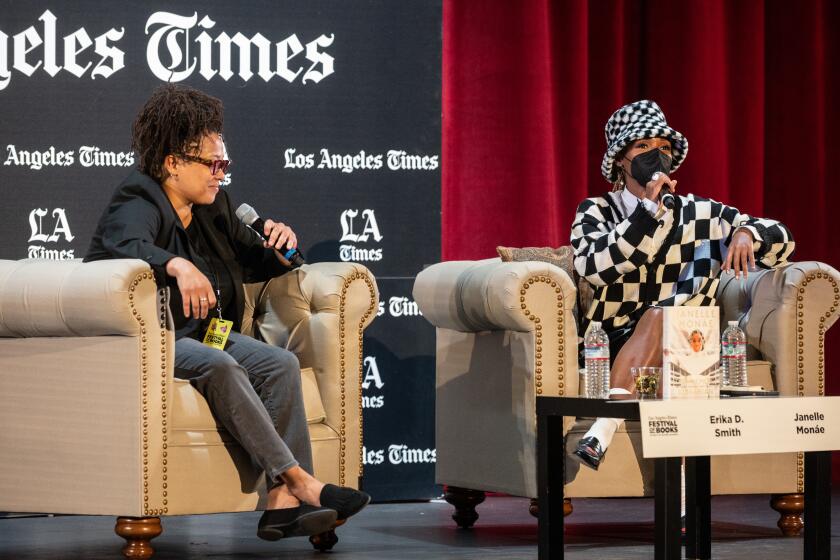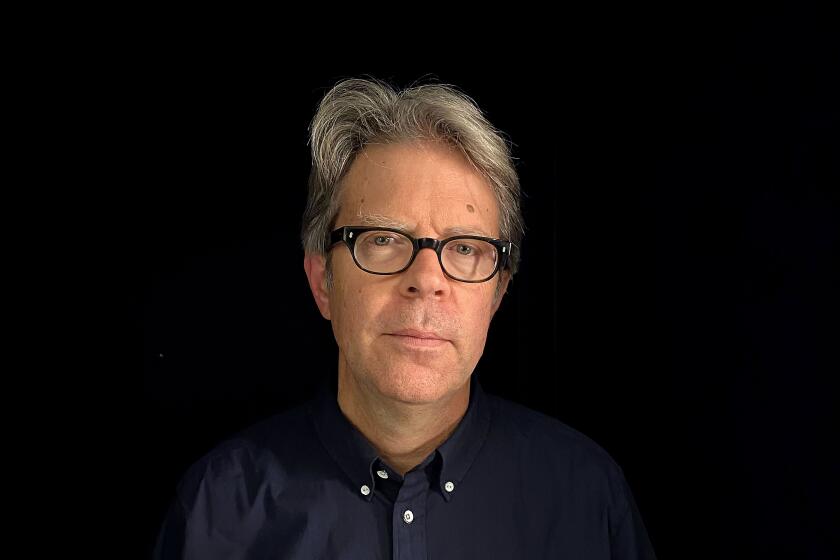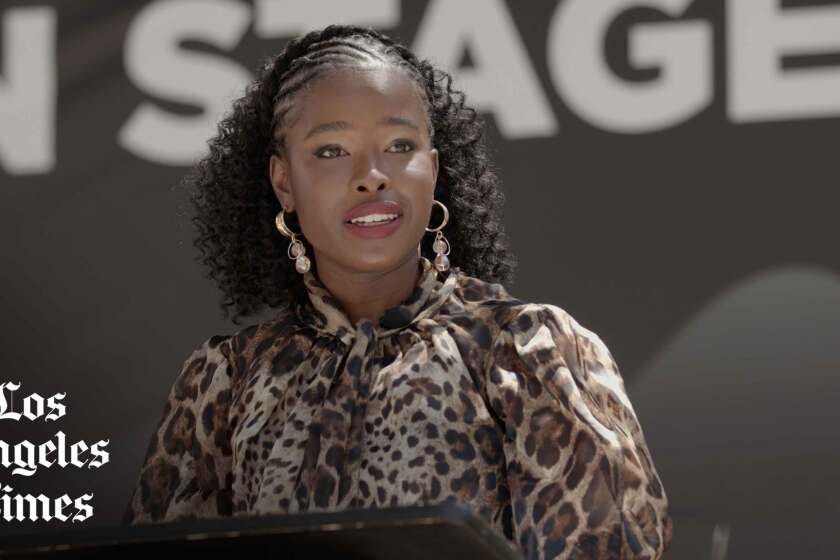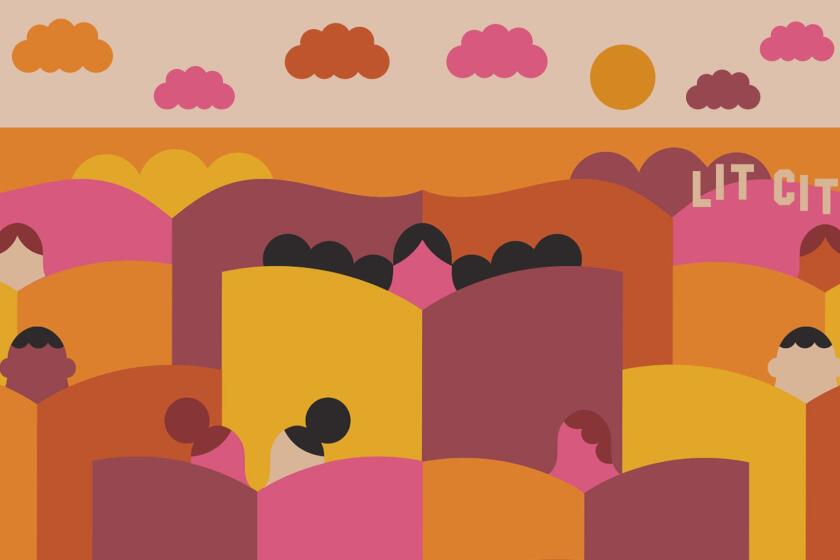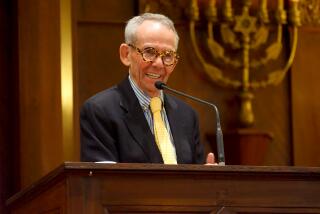Jonathan Franzen shares some secrets, sort of, in his first public appearance for ‘Crossroads’
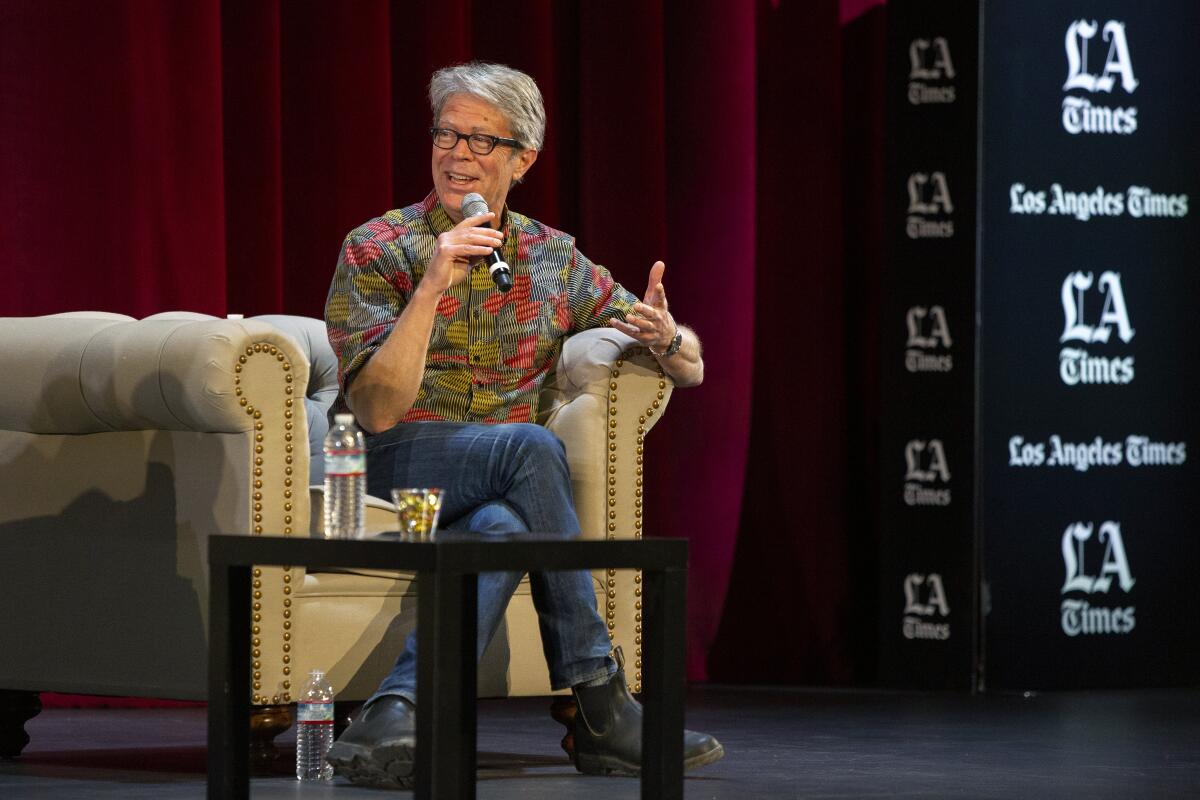
Jonathan Franzen, wearing a colorful patterned shirt, blue jeans and dusty boots, laughed at the burst of applause that greeted him and his interviewer, Héctor Tobar, as they walked onto the stage.
On the second round of clapping, he smiled again. But it was part smile, part grimace.
“This is my first live, in-person event for ‘Crossroads,’” he told the crowd at Bovard Auditorium. “And it’s my first time at the Los Angeles Times Book Festival. I suppose, given the circumstances, it’s OK to vouchsafe my secrets or at least one secret about this book.”
“Crossroads” is the first installment in what Franzen has suggested will be a trilogy. It tells the story of a minister, Russell Hildebrandt, who is pushed out by the youth group at his church; his long-suffering wife, Marion; and their three children.
Panels, prizes and people — lots of them. Coverage of the L.A. Times’ first in-person Festival of Books since 2019 begins below.
“When a friend found out I was writing a novel about Christianity, she asked, ‘are you trying to commit career suicide?’” Franzen said with a laugh.
“I knew I wanted to write a family novel, but this book wasn’t supposed to be the book it became,” Franzen told Tobar. “I started writing the ‘70s section, but I thought the book would span the ‘70s to the present day. Then I realized I had 200 pages and I hadn’t even finished introducing the main characters.”
His new novel, ‘Crossroads,’ is extraordinary, immersive, even fun. But it makes you wonder what Franzen might accomplish if more were at stake
Franzen now lives in the Santa Cruz mountains after many years of living in New York. “Much of the vibes, you know, those ‘70s vibes come from California, from Santa Cruz,” he said. “The ‘70s were the most important decade in my life.”
Franzen laughed any time Russell was mentioned.
“Well,” he said, “Russell is a comic character. I had to make him a comic character because that was the only way to make him palpable. Writing Russell is so much fun because everything he does is so humiliating!”
Much of the inner conflict of the members of the Hildebrandt family comes from the Christian ethos of being and doing good. “It reminded me a bit of the mid-20th century novel,” Tobar said. “I feel like we don’t carry around that much guilt anymore.”
Franzen paused, then responded sardonically, “Well, it’s still available.”
The idea of sin, the idea that “I’m hopelessly bad,” as Franzen put it, is best embodied by Marion, who is Catholic.
“This isn’t a question but, what a great character!” Tobar exclaimed.
Franzen paused, then smiled. Marion’s backstory is one of the most intense parts of the novel, which takes the reader back to Raymond Chandler-esque 1930s Los Angeles.
“I knew Marion had to have secrets,” Franzen said. “Figuring out those secrets was possible through her Catholic framework. For Marion, sin is real. The devil is real.”
Tobar brought up identity and class as the predominately white youth group in the novel volunteers in an inner-city under-served church in Chicago and at a Navajo reservation.
“As long as I was in the white main character’s perspective I could write it,” Franzen said.
Gorman read her poem “Fugue,” about the ravages of the pandemic, publicly for the first time at the Los Angeles Times Festival of Books on Saturday.
There were other questions from the audience about writing women, which Franzen attributed to spending much of his life primarily with women: his mother, and his “spouse-equivalent” as he called her — Kathy Chetkovich, to whom the book is emphatically dedicated. (“To Kathy!”) “I think I’ve spent enough time with that subset of people to write them.”
One audience member was bold enough to ask when the next installment of the trilogy would come. Franzen shifted uncomfortably in his armchair.
“Thank you for your question,” he winced. “I don’t really like to talk about it much.”
But the crowd was ready for more.
“It took me 24 months to write ’Crossroads.’ And that was seven days a week, after I had mapped it out,” Franzen finally offered.
The audience member was undeterred. “But …” she asked, “Is there a time frame?”
Franzen was tickled. “The truth is,” he said, “I’m getting slower as a writer.”
A guide to the literary geography of Los Angeles: A comprehensive bookstore map, writers’ meetups, place histories, an author survey, essays and more.
More to Read
Sign up for our Book Club newsletter
Get the latest news, events and more from the Los Angeles Times Book Club, and help us get L.A. reading and talking.
You may occasionally receive promotional content from the Los Angeles Times.
